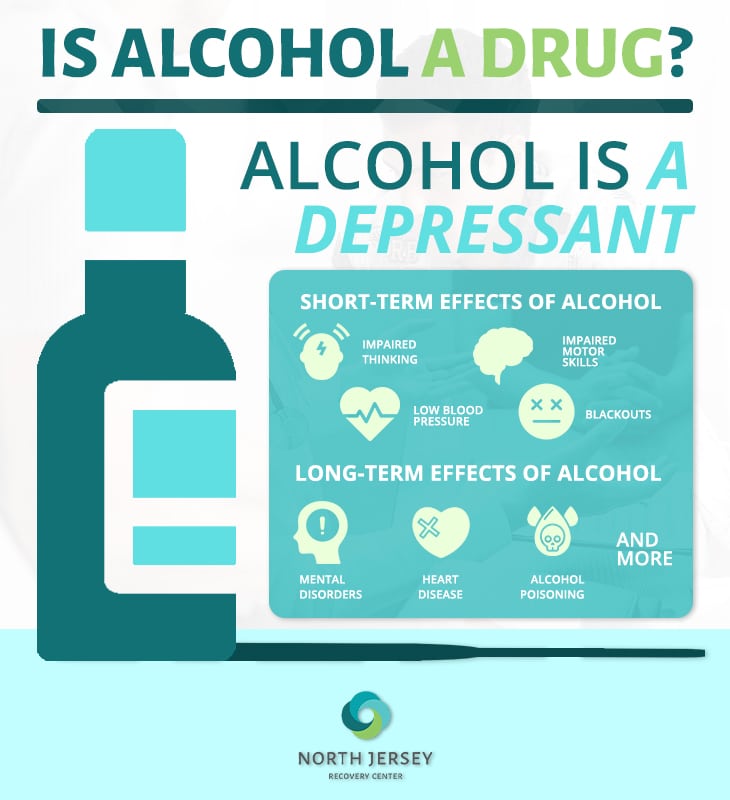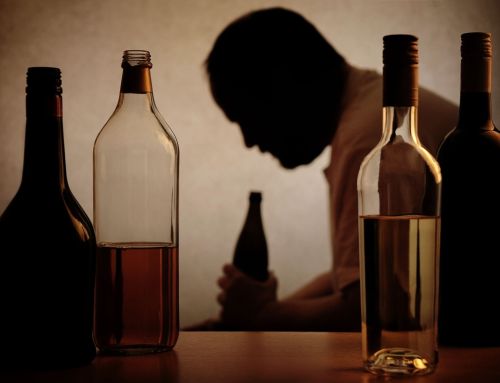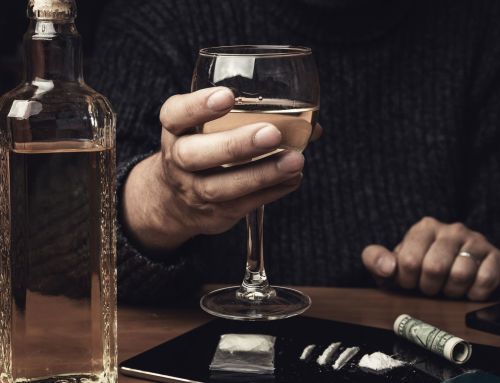
Alcohol is technically classified as a food item, although it also acts like a drug. Although it contains calories, alcohol has virtually no vitamins, minerals, or protein in return. Each time you consume one serving of alcohol (100-150 calories), you are gaining more weight from an empty calorie source that will give no nutritional value to your body whatsoever. Still, one may still wonder, is alcohol a drug? If so, what type of drug is alcohol? Why is alcohol considered a drug?
Understanding Alcoholism and Where to Turn for Help
Many people look forward to a few beers after work or a glass of wine while cooking dinner. If individuals were to log how much alcohol they consume every week, they might notice a pattern that repeats itself. Is it possible they are actually addicted to alcohol?
It turns out that alcohol is also considered to be a drug because it falls within the class of depressants. Alcohol consumption can cause slurred speech, unsteady movement, disturbed perceptions, and an inability to react quickly. Mentally, it lessens inhibitions and distorts judgment. Consuming too much alcohol in a short amount of time can lead to respiratory failure or coma, which may ultimately result in death.
What is Alcohol?
When yeast ferments the sugars in different food items, alcohol develops. For example, wine comes from grapes containing sugar, and beer from malted barley which contains a type of sugar called maltose. Cider can be made with apples or other fruit that contain natural sugars while vodka starts as potatoes or another plant-based product before being distilled to leave only its ethanol content behind.
We commonly know alcohol as beer, wine, and liquor, but is alcohol a drug?
Origins of Alcohol
Alcoholic beverages go back thousands of years. A sense of pleasure and relaxation became the basis for drinking alcohol. Evidence of alcohol appeared from the discovery of beer jugs dating back to around 10,000 B.C.
As the 19th century rolled in, limitations on drinking alcohol were enforced, especially through prohibition. Since then, alcohol has been regulated by laws restricting certain age groups from buying and drinking. However, these laws often fail to curb the use of alcohol. Young people still find ways to drink, and alcohol has become common in most social gatherings and events.
Ingredients in Alcohol
The combination of sugars, yeast, and other ingredients, causes a chemical process that produces ethanol. It is this ethanol that, when consumed, changes the way our brain and body function.
Different types of alcoholic beverages contain varying amounts of ethanol. Certain drinks will cause more intense symptoms than others. The higher the alcohol content, the stronger the symptoms.
Addiction is not affected by the content of alcohol. It can happen whether you consume beer or harder substances like liquor. The main question is—is alcohol a drug?

Alcohol Content in Different Types of Drinks
High Content:
- Moonshine 100%
- Liqueurs up to 60%
- Vodka up to 50%
- Whiskey up to 50%
- Tequila up to 40%
- Rum up to 40%
Low Content:
- Wine and Wine Coolers up to 20%
- Ciders and Ales up to 8%
- Beer up to 6%
Alcohol is a Drug
Alcohol is a type of depressant, similar to many prescription drugs and over-the-counter drugs. This substance may not be “prescribed,” but it affects the brain in many of the same ways that other drugs do.
Prescription Depressants Include:
- Tranquilizers
- Antipsychotics
- Sedatives
- Sleeping pills
Is alcohol a drug that is considered as intense as prescription depressants? Yes, alcohol is just as addictive as Xanax, Lunesta, Klonopin, or any other depressant.
Effects of Alcohol
The side effects of alcohol are what drives us to seek it out and drink it. How many of us go to a social gathering and enjoy a beer or glass of wine? Do those drinks help you to relax and be more sociable? The marriage of food and alcohol is often enjoyed, especially with BBQs, dinner parties, and cocktail hours. Why? Because the “side effects” of alcohol can loosen us up to have more fun.

Short-term Side Effects of Alcohol
The potential dangers of alcoholism are clear. Alcohol can lead to physical damage, risky behavior, and conflict in social situations leading to a decrease in inhibitions with the riskier behaviors that may result from this lack of inhibition. The most immediate side effect of alcohol is that it makes us feel drunk.
These are some of the symptoms of drunkenness:
- Impaired thinking
- Impaired motor skills
- Lack of coordination
- Sense of calm, relaxation
- Lower heartbeat, blood pressure, breathing
- An overall feeling of sadness
- Urination difficulty
- Slurred speech
- Feeling tired
- Blackouts
- Dizziness
Long-Term Side Effects of Alcohol
Is alcohol a drug that can cause serious and lasting side effects? Alcohol has a myriad of negative side effects, including alcoholism. An alcohol addiction treatment program may help you quit drinking and avoid the long-term consequences it can have on your liver, pancreas, brain function, or body in general. Long-term use of alcohol changes our brains and bodies in ways we may not be aware of.
Mental and Physical Side Effects
- Blackouts
- Stroke
- Ulcers
- Gastritis
- Cancer
- Suicide
- Death
- Moodiness
- Addiction (alcoholism)
- Miscarriage and stillbirth
- Alcohol poisoning
- Loss of sex drive
- Malnutrition
- Heart disease
- Abusive behavior
- Fetal deformities
- Fetal Alcohol Syndrome
- High blood pressure
- Liver damage/disease
- Permanent brain damage
- Permanent nerve damage
- Worsening of mental disorders
- Suicidal thoughts/tendencies
- Development of Wernicke-Korsakoff Syndrome
An alarming 80% of alcoholics are deficient in thiamine. This deficiency can lead to Wernicke-Korsakoff Syndrome, which is a brain disorder causing encephalopathy or psychosis.
Social Side Effects
- Divorce
- Job loss
- Self-isolation
- Loss of friends
- Loss of home
- Financial strain
- Relationship strain
- Loss of driving privileges
- Arrest and imprisonment
- Indirect harm through accidents
- Requiring a lifetime of someone caring for you
- Drunk driving that can lead to arrest or imprisonment
- Mental illness and alcoholism
Is alcohol a drug that worsens existing mental disorders? In short, yes, it can. Alcohol abuse is associated with numerous mental disorders and can exacerbate their severity.

Mental Disorders Associated with Alcoholism
- Anxiety
- Depression
- Social Phobia
- Panic Disorder
- Sleep Disorders
- Bipolar Disorder
- Eating Disorders
- Antisocial Personality Disorder
- Obsessive-Compulsive Disorder
- Post-Traumatic Stress Disorder
Alcohol is a Drug That Leads to Addiction
Why is alcohol a drug of choice for so many of us? Alcohol does not require a prescription and is obtainable by merely going to the store.
Is alcohol a drug that only affects adults? No, it has the same addictive ability for teens, middle-aged adults, as well as the elderly. Binge drinking is popular among people of all ages. It’s most common for younger adults aged 18-34, but older drinkers are not left out either. More than half the binge drinks consumed happen to be by those over 35 years old.
When is alcohol abuse a drug problem? The varying demographics of alcohol abuse and addiction are startling in contrast to what many of us think.
Under-Age Alcohol Abuse Within the U.S. during 2018:
- Approximately 7.1 million under the age of 20 consumed alcohol, of which 19.5% were females, and 18.2% were males.
- About 4.3 million under the age of 20 participated in binge drinking.
- Approximately 861,000 (2.3% of the age-group population) under the age of 20 heavily abused alcohol.
Older Adults and Alcohol Abuse Within the U.S. in 2018:
- 3% of adults admit to drinking alcohol.
- 45% of adults admit to binge drinking.
- 6% of adults admit to heavily abusing alcohol.
A study done in 2012 indicated that 10% of children in the U.S. had an alcoholic parent.
When is Alcohol Use Considered an Addiction?
You may have an addiction to alcohol if you:
- Prefer to drink alone.
- Spend your last dollar on alcohol.
- Drink all throughout the day or night.
- Cannot enjoy social events without drinking.
- Crave it and cannot go for long periods without it.
- Become violent and abusive towards your loved ones.
If you see yourself in any of the above scenarios, facts, or statistics, you need help. Many people with an addiction to alcohol do not view themselves as alcoholics. Taking the first step in admitting you are an alcoholic is the hardest part of this recovery journey.
How Do You Get Help?
Did you know that someone dies because of a drunk driver every 50 minutes in the U.S.? Admitting you have a drinking problem is the first and hardest step. Next, it’s time to get help from professionals who will be by your side the entire time. North Jersey Recovery Center is a leading treatment facilities for alcoholism. We have a professional standing by 24/7 to take your phone call. The moment you speak with someone, you will be embraced with compassion.
Inpatient Treatment for Alcohol Addiction
Inpatient rehab for alcohol abuse is a way to get sober from addiction. In these facilities, patients live in the facilities and undergo rigorous therapy as they work towards sobriety. Patients eat meals at set times each day, sleep on-site every night, and are able to visit loved ones during designated visitation hours of the week or month.
Before you are admitted into an inpatient facilities you will need to undergo detox. Depending on your level and length of addiction, detox could last a couple of days to a week. Medical detox may be necessary to assist with withdrawal symptoms.
Outpatient Treatment for Alcohol Addiction
When you have graduated to the outpatient program, you will visit the facilities as scheduled to continue treatment. For those who need to plan their treatment around work, children, or school, we offer an intensive outpatient program.
Payment and Insurance
The costs of inpatient alcohol rehab depend on a person’s needs, insurance coverage, and other factors. North Jersey Recovery accepts most major health insurance providers such as Cigna, Empire Blue Cross, and Aetna to name just a few. Insurance may significantly reduce (even eliminate) the cost of rehabilitation depending on individual circumstances which can include treatment-related needs or financial resources available through their employer or personal savings accounts
Our staff is more than happy to verify your insurance on your behalf to make things easier for you. You also have the option to use our online verification form to do it yourself.
Regaining Control to Live a Full Life
Treatment is a gift to yourself and to those you love. Do not let alcohol slowly strip you of the most valuable things and pleasures of life. You have value and worth, and who knows, you may be the one who inspires someone else with the same problem to find help. Be their inspiration!










